Palestine Is Everywhere
‘Palestine Is Everywhere’ is an encounter and screening at Museo Reina Sofía organised together with Cinema as Assembly as part of Museum of the Commons. The conference starts at 18:30 pm (CET) and will also be streamed on the online platform linked below.
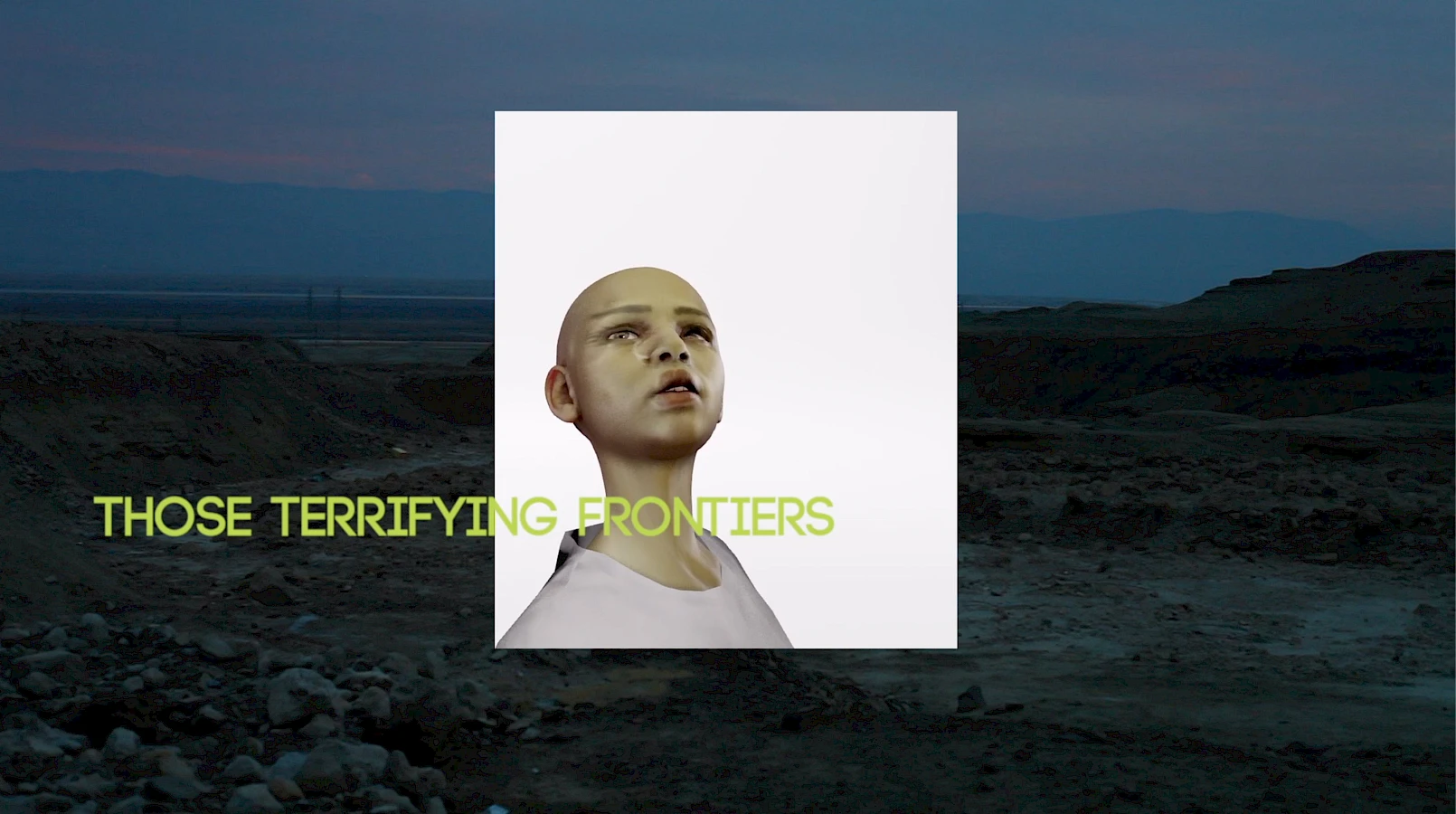
Basel Abbas and Ruanne Abou-Rahme, At Those Terrifying Frontiers Where the Existence and Disappearance of People Fade Into Each Other, 2019. Courtesy Museo Reina Sofía
Palestine Is Everywhere is the international slogan of solidarity with the Palestinian people and also the title of a global debate that situates Palestine at the centre of our historical time, understanding the war in Gaza as the start of a new cycle shaped by colonial expansion. Under this title, Museo Reina Sofía organises an encounter that opens with a video recital by Palestinian poet Ibrahim Nasrallah, one of the best-known poetic voices in the Arab language. Following his intervention, artists and theorists Nitasha Dhillon and Amin Husain, part of the Decolonize This Place (DTP) movement, philosopher Marina Garcés and anthropologist Massimiliano (Mao) Mollona will exchange reflections, experiences and viewpoints on the Palestinian situation and cause in a round-table discussion. As a coda to the session, there will be a viewing of Those Terrifying Frontiers Where the Existence and Disappearance of People Fade Into Each Other (2019), a work by Palestinian artists Basel Abbas and Ruanne Abou-Rahme. The eleven-minute video piece sets up a dialogue between the writings of Palestinian-American intellectual Edward Said (1935–2003) and AI-created images of protests at the wall that runs along the Gaza Strip.
With reverberations and protests around the world, Palestine has become a paradigm for a future to be recovered. Slogans such as Palestine Is Everywhere and Palestine Is All Around must be read in light of the rejection of the expansion of the colonial regime as they evoke the vindication and shared sense of inter-connected dissidences and movements for international freedom: from Palestine to the Brazilian rainforest, from Chiapas to Guinea-Bissau. With their resistance and demands, these territories are crying out for a new world-system that is more just, diverse and equal. What does it mean to be part of the planetary anti-colonial struggle? How to reorient ourselves towards fresh global movements that question the hegemony of the nation state? How to relate images of global freedom, those considered from desire, not pain, in this new temporal framework?
Streaming link and more information
Related activities
-
–Van Abbemuseum
The Soils Project
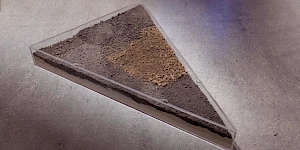
‘The Soils Project’ is part of an eponymous, long-term research initiative involving TarraWarra Museum of Art (Wurundjeri Country, Australia), the Van Abbemuseum (Eindhoven, Netherlands) and Struggles for Sovereignty, a collective based in Yogyakarta, Indonesia. It works through specific and situated practices that consider soil, as both metaphor and matter.
Seeking and facilitating opportunities to listen to diverse voices and perspectives around notions of caring for land, soil and sovereign territories, the project has been in development since 2018. An international collaboration between three organisations, and several artists, curators, writers and activists, it has manifested in various iterations over several years. The group exhibition ‘Soils’ at the Van Abbemuseum is part of Museum of the Commons. -
–VCRC
Kyiv Biennial 2023
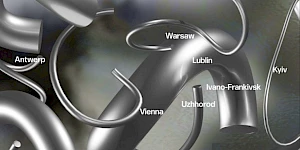
L’Internationale Confederation is a proud partner of this year’s edition of Kyiv Biennial.
-
–MACBA
Where are the Oases?
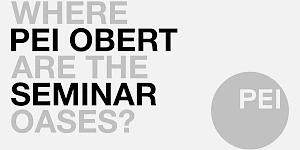
PEI OBERT seminar
with Kader Attia, Elvira Dyangani Ose, Max Jorge Hinderer Cruz, Emily Jacir, Achille Mbembe, Sarah Nuttall and Françoise VergèsAn oasis is the potential for life in an adverse environment.
-
MACBA
Anti-imperialism in the 20th century and anti-imperialism today: similarities and differences
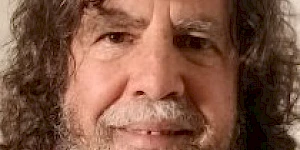
PEI OBERT seminar
Lecture by Ramón GrosfoguelIn 1956, countries that were fighting colonialism by freeing themselves from both capitalism and communism dreamed of a third path, one that did not align with or bend to the politics dictated by Washington or Moscow. They held their first conference in Bandung, Indonesia.
-
Museo Reina Sofia
School of Commoning Practices
This exchange programme gathers different schools organized by volunteers and migrant communities in Athens (Open School for Migrants) and Madrid (School of Rights, Escuela de Español and Situated mediation School) in order to share their knowledge, exchange strategies and reflect on the experience of working together with migrant communities.
-
2023 – 2026 Institute of Radical ImaginationMuseo Reina SofiaCinema as Assembly
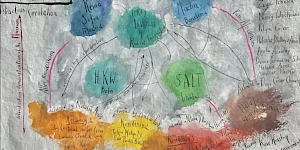
Cinema as Assembly investigates cinema as a space of social gathering and political engagement that prefigures and enacts forms of living beyond colonial capitalism.
-
1 Sep 2023 –30 Jun 2024 Museo Reina SofiaTeam of Teams
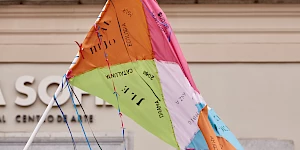
This project researches citizen participation as a fundamental pillar in the creation of community.
-
1 Apr 2024 –21 Dec 2025 Museo Reina SofiaSustainable Art Production
The Studies Center of Museo Reina Sofía will publish an open call for four residencies of artistic practice for projects that address the emergencies and challenges derived from the climate crisis such as food sovereignty, architecture and sustainability, communal practices, diasporas and exiles or ecological and political sustainability, among others.
-
21 Jun 2023 –6 Jul Van AbbemuseumMaria Lugones Decolonial Summer School
Recalling Earth: Decoloniality and Demodernity
Course Directors: Prof. Walter Mignolo & Dr. Rolando VázquezRecalling Earth and learning worlds and worlds-making will be the topic of chapter 14th of the María Lugones Summer School that will take place at the Van Abbemuseum in Eindhoven.
-
23 Apr 2023 –30 Sep 2024 MSNArchive of the Conceptual Art of Odesa in the 1980s
The research project turns to the beginning of 1980s, when conceptual art circle emerged in Odesa, Ukraine. Artists worked independently and in collaborations creating the first examples of performances, paradoxical objects and drawings.
-
24 Aug 2024 –30 Aug Moderna galerijaZRC SAZUSummer School: Our Many Easts
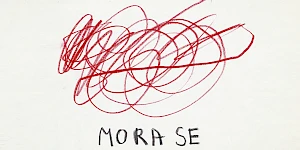
Our Many Easts summer school is organised by Moderna galerija in Ljubljana in partnership with ZRC SAZU (the Research Centre of the Slovenian Academy of Sciences and Arts) as part of the L’Internationale project Museum of the Commons.
-
15 Feb 2024 –15 Mar Moderna galerijaZRC SAZUOpen Call – Summer School: Our Many Easts

Our Many Easts summer school takes place in Ljubljana 24–30 August and the application deadline is 15 March. Courses will be held in English and cover topics such as the legacy of the Eastern European avant-gardes, archives as tools of emancipation, the new “non-aligned” networks, art in times of conflict and war, ecology and the environment.
-
10 Feb 2024 –1 Apr MACBASong for Many Movements: Scenes of Collective Creation
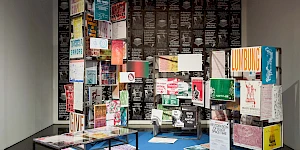
An ephemeral experiment in which the ground floor of MACBA becomes a stage for encounters, conversations and shared listening.
-
5 Jun 2024 Museo Reina SofiaPalestine Is Everywhere
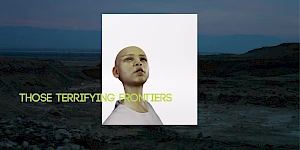
‘Palestine Is Everywhere’ is an encounter and screening at Museo Reina Sofía organised together with Cinema as Assembly as part of Museum of the Commons. The conference starts at 18:30 pm (CET) and will also be streamed on the online platform linked below.
-
4 Sep 2024 –30 Sep Museo Reina SofiaOpen Call: Research Residencies
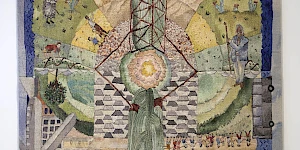
The Centro de Estudios of Museo Reina Sofía releases its open call for research residencies as part of the climate thread within the Museum of the Commons programme.
-
10 Oct 2025 –18 Jan 2026 Kyiv Biennial 2025
L’Internationale Confederation is proud to co-organise this years’ edition of the Kyiv Biennial.
-
6 Nov 2025 –6 Apr 2026 MACBAProject a Black Planet: The Art and Culture of Panafrica

Curated by MACBA director Elvira Dyangani Ose, along with Antawan Byrd, Adom Getachew and Matthew S. Witkovsky, Project a Black Planet: The Art and Culture of Panafrica is the first major international exhibition to examine the cultural manifestations of Pan-Africanism from the 1920s to the present.
-
13 Jun 2025 –21 Sep M HKAThe Geopolitics of Infrastructure

The exhibition The Geopolitics of Infrastructure presents the work of a generation of artists bringing contemporary perspectives on the particular topicality of infrastructure in a transnational, geopolitical context.
-
10 Nov 2025 –16 Nov MACBAMuseo Reina SofiaSchool of Common Knowledge 2025
The second iteration of the School of Common Knowledge will bring together international participants, faculty from the confederation and situated organisations in Barcelona and Madrid.
-
2025 Museo Reina SofiaSchool of Commoning Practices. Publication
Students, teachers and organizations of self-managed language and cultural mediation schools for migrants in Florence, Athens and Madrid share their experiences.
-
1 Jan 2025 –31 Dec Museo Reina SofiaSustainable Art Production. Research Residencies
The projects selected in the first call of the Sustainable Art Practice research residencies are A hores d'ara. Experiences and memory of the defense of the Huerta valenciana through its archive by the group of researchers Anaïs Florin, Natalia Castellano and Alba Herrero; and Fundamental Errors by the filmmaker and architect Mauricio Freyre.
-
8 May 2025 –9 May Collective Study in Times of Emergency, Amsterdam
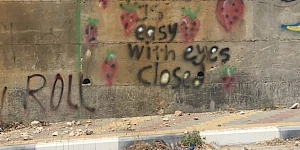
Within the context of ‘Every Act of Struggle’, the research project and exhibition at de appel in Amsterdam, L’Internationale Online has been invited to propose a programme of collective study.
-
25 Apr 2025 Museo Reina SofiaPoetry readings: Culture for Peace – Art and Poetry in Solidarity with Palestine
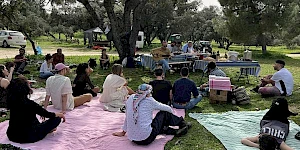
Casa de Campo, Madrid
-
28 May 2025 –27 Jun Museo Reina SofiaMACBAOpen Call – School of Common Knowledge 2025
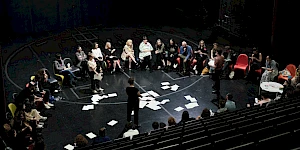
Museo Reina Sofía and MACBA Museu d’Art Contemporani de Barcelona (MACBA) invite applications for the 2025 iteration of the School of Common Knowledge, which will take place in Madrid and Barcelona 11-16 November 2025. The School of Common Knowledge (SCK) draws on the network, knowledge and experience of L’Internationale. Its ambition is to be both nomadic and situated, looking at specific cultural and geopolitical situations while exploring their relations and interdependencies with the rest of the world. This year, the SCK program focuses on the contested and dynamic notions of rooting and uprooting in the framework of present – colonial, migrant, situated, and ecological – complexities. Building on the legacy of the Glossary of Common Knowledge and the current European program Museum of the Commons, the SCK invites participants to reflect on the power of language to shape our understanding of art and society through a co-learning methodology.
Related contributions and publications
-
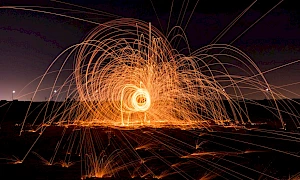
…and the Earth along. Tales about the making, remaking and unmaking of the world.
Martin Pogačar14 Nov 2023 Land RelationsClimatePast in the Present -
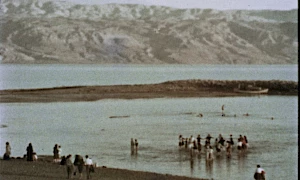
The Kitchen, an Introduction to Subversive Film with Nick Aikens, Reem Shilleh and Mohanad Yaqubi
Nick Aikens, Subversive Film13 Jul 2023 Sonic and Cinema CommonslumbungPast in the PresentVan Abbemuseum -
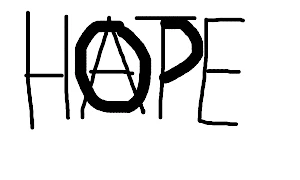
The Repressive Tendency within the European Public Sphere
Ovidiu Ţichindeleanu6 Dec 2023 InternationalismsPast in the Present -
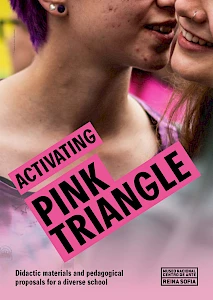
Activating Pink Triangle. Didactic materials and pedagogical proposals for a diverse school
2022 Museo Reina Sofia -
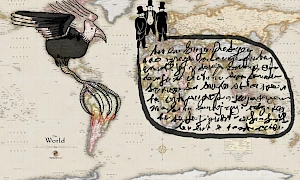
Troubles with the East(s)
Bojana Piškur22 Jan 2024 InternationalismsPast in the Present -
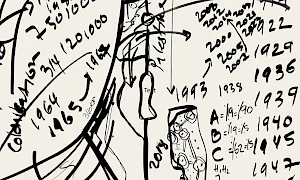
Right now, today, we must say that Palestine is the centre of the world
Françoise Vergès21 Dec 2023 InternationalismsPast in the Present -
Body Counts, Balancing Acts and the Performativity of Statements
Mick Wilson20 Dec 2023 InternationalismsPast in the Present -
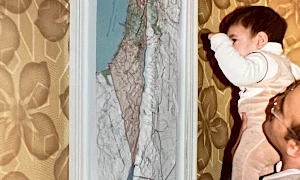
Until Liberation I: Learning Palestine
Learning Palestine Group8 Dec 2023 InternationalismsPast in the Present -
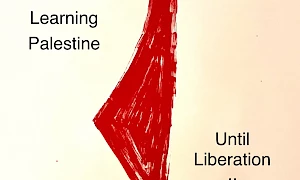
Until Liberation II: Learning Palestine
Learning Palestine Group12 Jan 2024 InternationalismsPast in the Present -
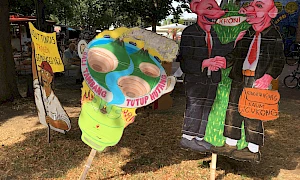
Prácticas lumbung para resistir y colaborar desde el arte
Constanza Yévenes Biénzobas30 Aug 2023 EN eslumbungSituated OrganizationsMuseo Reina Sofia -
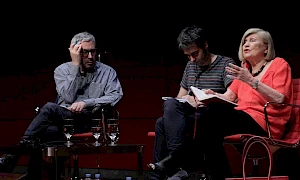
Populism. A Dialogue on Art, Representation and Institutions in the Crisis of Democracy
Chantal Mouffe, Didier Eribon8 Jun 2017 DialoguesMuseo Reina Sofia -
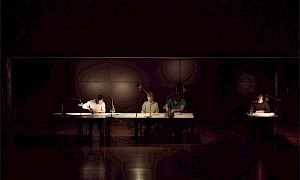
Congresso Internacional Extraordinário dos Críticos de Arte, 1959
27 Apr 2017 DialoguesMuseo Reina Sofia -
Art Museums and Democracy
Charles Esche, Manuel Borja-Villel, Bart de Baere12 Dec 2016 DialoguesM HKAVan AbbemuseumMuseo Reina Sofia -
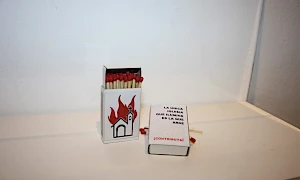
L'Internationale statement in support of MNCARS
L’Internationale Confederation4 Nov 2014 EN es sl nl trStatements and editorialsMuseo Reina Sofia -
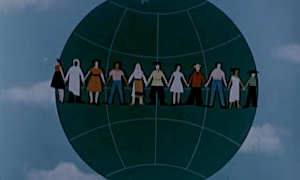
The Veil of Peace
Ovidiu Ţichindeleanu31 Oct 2023 Past in the Presenttranzit.ro -
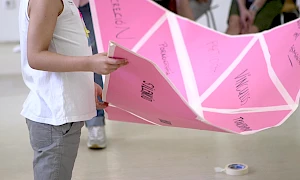
Triángulo Rosa / Pink Triangle
Alicia Bernardos, Trinidad A. Labrador, Carolina León, Mercedes Sánchez Sáinz, Marco Antonio Theis Fuentes, Miquel Missé17 Dec 2020 Museo Reina Sofia -
Editorial: Towards Collective Study in Times of Emergency
L’Internationale Online Editorial Board29 Nov 2023 EN es sl tr arInternationalismsStatements and editorialsPast in the Present -
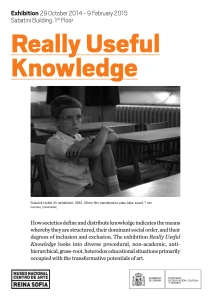
Really Useful Knowledge
2014 Museo Reina Sofia -
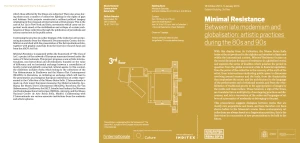
Minimal Resistance. Between Late Modernism and Globalisation: Artistic Practices During the 80s and 90s
2013 Museo Reina Sofia -
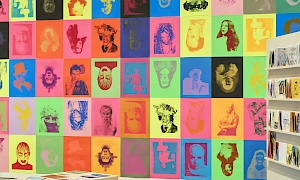
Opening Performance: Song for Many Movements, live on Radio Alhara
Jokkoo with/con Miramizu, Rasheed Jalloul & Sabine Salamé23 Feb 2024 EN esInternationalismsSonic and Cinema CommonsPast in the PresentMACBA -
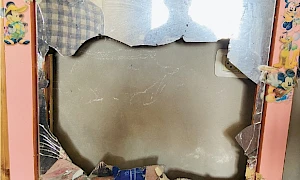
Biz Ezelden Beri Buradayız. Filistinli Şairlerin Kaleminden
Rana Issa4 Mar 2024 EN tr arInternationalismsPast in the Present -

Indra's Web
Vandana Singh1 Mar 2024 Land RelationsPast in the PresentClimate -
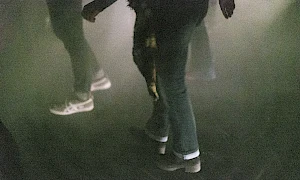
Mix tape: Let's funk up all genders!
Materia Hache / Others to the Front19 Mar 2024 EN esSonic and Cinema CommonsSituated OrganizationsMuseo Reina Sofia -
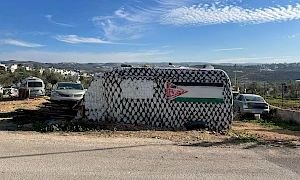
Diary of a Crossing
Baqiya and Yu’ad27 Mar 2024 InternationalismsPast in the Present -
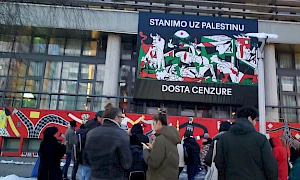
The Silence Has Been Unfolding For Too Long
The Free Palestine Initiative Croatia11 Apr 2024 InternationalismsPast in the PresentSituated OrganizationsInstitute of Radical ImaginationMSU Zagreb -

War, Peace and Image Politics: Part 1, Who Has a Right to These Images?
Jelena Vesić14 May 2024 InternationalismsPast in the PresentZRC SAZU -
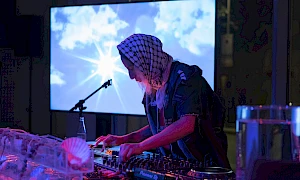
Live set: Una carta de amor a la intifada global
Precolumbian13 Jun 2024 EN esInternationalismsSonic and Cinema CommonsPast in the PresentMACBA -
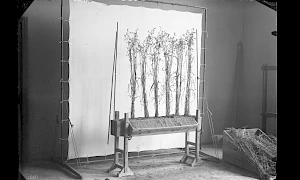
Cultivating Abundance
Åsa Sonjasdotter28 Jun 2024 Land RelationsClimatePast in the Present -
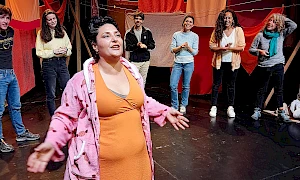
Poner el nombre a una causa en tierra extraña
Dagmary Olívar Graterol, Paola de la Vega Velastegui5 Jul 2024 EN esSchoolsSituated OrganizationsMuseo Reina Sofia -
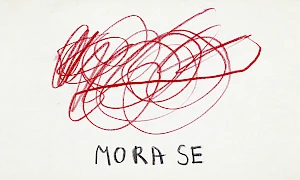
Reading list - Summer School: Our Many Easts
Summer School - Our Many Easts6 Sep 2024 SchoolsPast in the PresentModerna galerija -
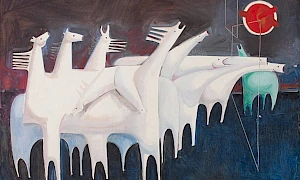
The Genocide War on Gaza: Palestinian Culture and the Existential Struggle
Rana Anani10 Sep 2024 InternationalismsPast in the Present -
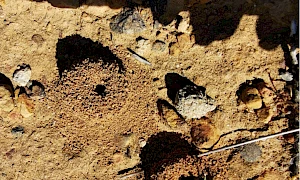
Klei eten is geen eetstoornis
Zayaan Khan17 Sep 2024 EN nl frLand RelationsClimatePast in the Present -
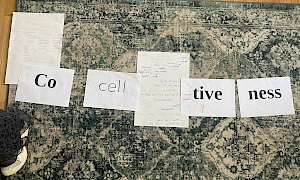
Dispatch: ‘I don't believe in revolution, but sometimes I get in the spirit.’
Megan Hoetger20 Sep 2024 SchoolsPast in the Present -
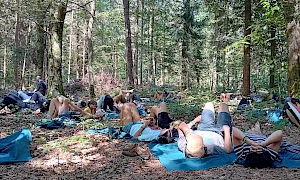
Dispatch: Notes on (de)growth from the fragments of Yugoslavia's former alliances
Ava Zevop24 Sep 2024 SchoolsPast in the Present -
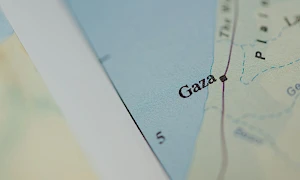
Glöm ”aldrig mer”, det är alltid redan krig
Martin Pogačar3 Oct 2024 EN svLand RelationsPast in the Present -
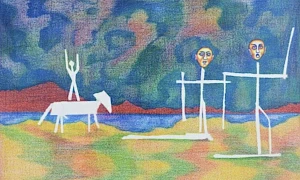
Beyond Distorted Realities: Palestine, Magical Realism and Climate Fiction
Sanabel Abdel Rahman14 Nov 2024 EN trInternationalismsPast in the PresentClimate -

Collective Study in Times of Emergency. A Roundtable
Nick Aikens, Sara Buraya Boned, Charles Esche, Martin Pogačar, Ovidiu Ţichindeleanu, Ezgi Yurteri15 Nov 2024 InternationalismsPast in the PresentSituated Organizations -

Present Present Present. On grounding the Mediateca and Sonotera spaces in Malafo, Guinea-Bissau
Filipa César27 Nov 2024 Sonic and Cinema CommonsPast in the Present -
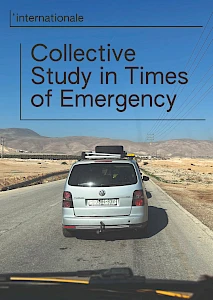
Collective Study in Times of Emergency
2024 InternationalismsPast in the Present -
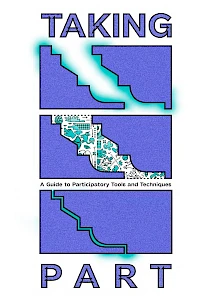
Taking Part. A Guide to Participatory Tools and Techniques
2024 EN esSchoolsSituated OrganizationsMuseo Reina Sofia -
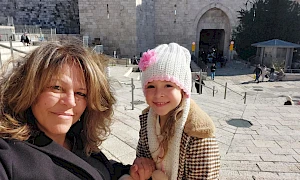
ميلاد الحلم واستمراره
Sanaa Salameh20 Jan 2025 EN hr arInternationalismsPast in the Present -
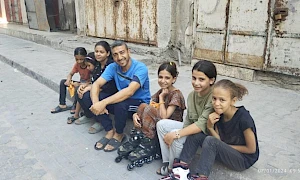
عن المكتبة والمقتلة: شهادة روائي على تدمير المكتبات في قطاع غزة
Yousri al-Ghoul20 Jan 2025 EN arInternationalismsPast in the Present -

Archivos negros. Episodio I. Internacionalismo radical y panafricanismo en el marco de la guerra civil española
Tania Safura Adam5 Feb 2025 EN esInternationalismsPast in the Present -

Re-installing (Academic) Institutions: The Kabakovs’ Indirectness and Adjacency
Christa-Maria Lerm Hayes14 Feb 2025 InternationalismsPast in the Present -
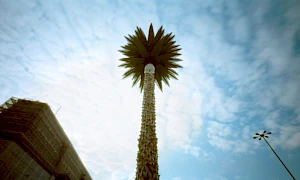
Palma daktylowa przeciw redeportacji przypowieści, czyli europejski pomnik Palestyny
Robert Yerachmiel Sniderman8 Apr 2025 EN plInternationalismsPast in the PresentMSN -

Masovni studentski protesti u Srbiji: Mogućnost drugačijih društvenih odnosa
Marijana Cvetković, Vida Knežević31 Mar 2025 EN rsInternationalismsPast in the Present -
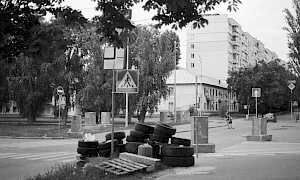
No Doubt It Is a Culture War
Oleksiy Radinsky, Joanna Zielińska23 Apr 2025 InternationalismsPast in the Present -
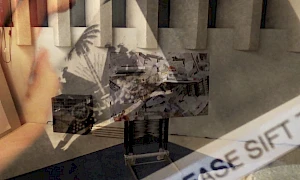
Dispatch: As Matter Speaks
Yeongseo Jee9 Jun 2025 InternationalismsPast in the Present -
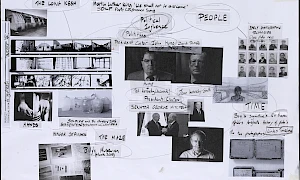
Reading List: Summer School, Landscape (post) Conflict
Summer School - Landscape (post) Conflict28 Jun 2025 SchoolsLand RelationsPast in the PresentIMMANCAD